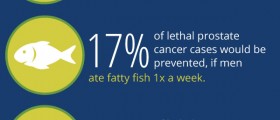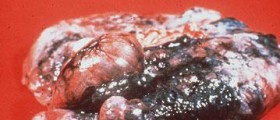
Since cancer, in general, is a condition which is still a great medical mystery, most causes of esophageal cancer are yet to be found. However, certain lifestyle factors may contribute to formation of this cancer, increasing one's risk for suffering from it.
Risk Factors Related to Esophageal Cancer
As we grow older, our body regenerates less commonly and less effectively. Thus, our chances of suffering from various forms of cancer are greater once we pass the age of 60. In fact, most patients with esophageal cancer are older than 60. Furthermore, sex of the patient seems to make a difference, since most patients suffering from this type of cancer are males.
Next, both smokeless tobacco and cigarette smoking are capable of triggering esophageal cancer, being labeled as one of the most common causes of this life-threatening condition. Additionally, alcohol abuse can have the same effect, especially when combined with the two previously mentioned unhealthy habits.
A history of acid reflux can lead to a condition called Barret's esophagus. Moreover, this condition can present a step closer to development of esophageal cancer itself. Basically, any type of prolonged and repeated irritation to the esophageal area may result in cancer.
Finally, having suffered from cancer in other surrounding areas such as the neck or head may increase your chances of developing this type of carcinoma too.
Facts about Esophageal Cancer
Even though most of the above mentioned risk factors tend to evolve into esophageal cancer, this is not necessarily the case since many people who show the symptoms of this disease actually remain unaffected. However, you are advised to be careful with tobacco and alcohol consumption since these are one of the most common preventable causes. Consume as much fresh fruits and vegetables as you can, because this is known to make you more resistant to this, and many other types of cancer.
As for the side-effects involved with different treatments for esophageal cancer, these can vary from one individual to another. Either way, the side-effects are always explained to patients and they can prepare for them adequately.
Some of the most common side-effects of surgery for this cancer type are pain and tenderness affecting the area of the operation. Fortunately, you can control and suppress this pain with medications. Also, you will be taught special breathing and coughing techniques which will decrease chances of pain too.
All in all, there are not many side-effects of esophageal cancer surgery and patients can usually recover from this procedure without problems.

















Your thoughts on this
Loading...